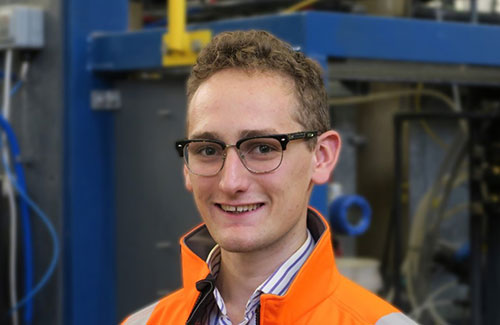"[...] SCI offers an amazing community where you can meet a range of potential collaborator and contacts, from fellow students to company directors."

My research focuses on synthesis, advanced characterisation, and electrochemical testing of cheap, sustainable and scalable enzyme-inspired atomic Iron in Nitrogen-doped Carbon electrocatalysts for O2 reduction in fuel cells and CO2 reduction in electrolysers.
How did you first get involved with SCI?
I first found out about the SCI through an advertisement for the “SCI: Materials for Energy Technology 2021 Conference” where I ended up presenting a talk on my research. The SCI offers an amazing community where you can meet a range of potential collaborator and contacts, from fellow students to company directors.
SCI aims to be ‘where science meets business’. What is the potential commercial application of your research?
By replacing Pt-based catalyst at the cathode of proton exchange membrane fuel cells, which makes up nearly 50% of the cost of the fuel cell stack (when produced at scale - 500,000 units/year) with cheaper Fe-based alternatives (single atom Fe in nitrogen-doped carbon), these catalysts can enable proton exchange membrane fuel cells to become more commercially viable and competitive. Proton exchange membrane fuel cells have promise and application in hard-to-decarbonise heavy-duty transportation (boats, airplanes, trucks), where currently no alternative non-CO2 emitting options exist.
What do you hope to gain from your involvement with SCI?
I hope to make new contacts both in academia and industry by attending more SCI events. I also plan to help run future SCI events through joining technical interest group committees. Finally, I look forward to connecting with and learning from my SCI mentor.
Angus Pedersen
Imperial College London, Department of Materials
External Links
